 W
WLancelot Andrewes was an English bishop and scholar, who held high positions in the Church of England during the reigns of Elizabeth I and James I. During the latter's reign, Andrewes served successively as Bishop of Chichester, of Ely, and of Winchester and oversaw the translation of the King James Version of the Bible. In the Church of England he is commemorated on 25 September with a Lesser Festival.
 W
WArngrímur Jónsson the Learned was an Icelandic scholar and a Christian apologist. His father was Jón Jónsson, who died in 1591. Arngrímur studied in Copenhagen, completing his studies in 1589 and taking up a position back in Iceland as rector of the Latin school at the episcopal seat of Hólar in the same year.
 W
WMadeleine de l'Aubespine was a French aristocrat, lady in waiting to Catherine de Medicis, poet, and literary patron. She was one of the only female poets praised by "the prince of poets," Pierre de Ronsard and she was one of the earliest female erotic poets.
 W
WAnne, Lady Bacon was an English lady and scholar. She made a lasting contribution to English religious literature with her translation from Latin of John Jewel's Apologie of the Anglican Church (1564). She was the mother of Francis Bacon.
 W
WThe Rt. Rev. William Bedell, D.D., was an Anglican churchman who served as Lord Bishop of Kilmore, as well as Provost of Trinity College Dublin.
 W
WRichard Brett (1567–1637) was an English clergyman and academic. During the translation of the King James Version of the Bible, Brett served in the "First Oxford Company", responsible for the later books of the Old Testament
 W
WFra' Annibale Caro, K.M., was an Italian writer and poet.
 W
WIsidoro Chiari, or Isidoro Clario or Isidoro da Chiari, perhaps better known by his Latin name Isidorus Clarius and sometimes called Brixianus after the land of his birth, was a founding father of the Council of Trent and an editor of an edition of the Vulgate.
 W
WCharles de l'Écluse, L'Escluse, or Carolus Clusius, seigneur de Watènes, was an Artois doctor and pioneering botanist, perhaps the most influential of all 16th-century scientific horticulturists.
 W
WMildred Cooke, Lady Burghley was an English noblewoman and translator in the sixteenth century. She was the wife of William Cecil, 1st Baron Burghley, the most trusted adviser of Elizabeth I, and the mother of Robert Cecil, 1st Earl of Salisbury, adviser to James I.
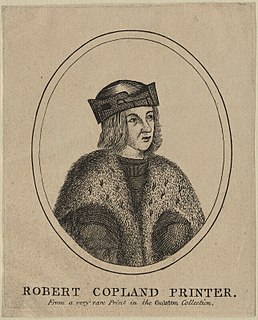 W
WRobert Copland, English printer and author, is said to have been a servant of William Caxton, and certainly worked for Wynkyn de Worde. The first book to which his name is affixed as a printer is The Boke of Justices of Peace (1515), at the sign of the Rose Garland, in Fleet Street, London. Anthony à Wood supposed, on the ground that he was more educated than was usual in his trade, that he had been a poor scholar of Oxford.
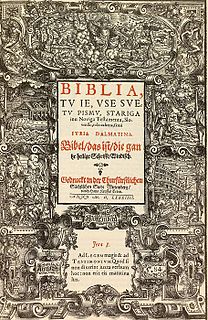 W
WJurij Dalmatin was a Slovene Lutheran minister, reformer, writer and translator. He translated the complete Bible into Slovene.
 W
WBernardo Davanzati was an Italian agronomist, economist and translator.
 W
WDr John Davies, Mallwyd was one of Wales's leading scholars of the late Renaissance. He wrote a Welsh grammar and dictionary. He was also a translator and editor and an ordained minister of the Church of England.
 W
WJohn Donne was an English poet, scholar, soldier and secretary born into a Catholic family, a remnant of the Catholic Revival, who reluctantly became a cleric in the Church of England. He was Dean of St Paul's Cathedral in London (1621–1631). He is considered the pre-eminent representative of the metaphysical poets. His poetical works are noted for their metaphorical and sensual style and include sonnets, love poems, religious poems, Latin translations, epigrams, elegies, songs, and satires. He is also known for his sermons.
 W
WElizabeth I was Queen of England and Ireland from 17 November 1558 until her death on 24 March 1603. Sometimes called the Virgin Queen, Gloriana or Good Queen Bess, Elizabeth was the last of the five monarchs of the House of Tudor.
 W
WGiovanni Florio (1553–1625), known as John Florio, was a translator, poet, playwright, linguist, lexicographer, and royal language tutor at the Court of James I. He is recognised as the most important humanist in Renaissance England. He was also the first translator of Montaigne into English, the first translator of Boccaccio into English and he wrote the first comprehensive Dictionary in English and Italian. John Florio contributed to the English language with 1,149 words, placing third after Chaucer and Shakespeare, in the linguistic analysis conducted by Stanford professor John Willinsky. He has been proposed as the real author of Shakespeare's works.
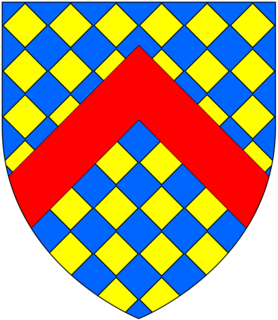 W
WSir Arthur Gorges, was a sea captain, poet, translator and courtier.
 W
WPetrus Gyllius or Gillius (1490–1555) was a French natural scientist, topographer and translator.
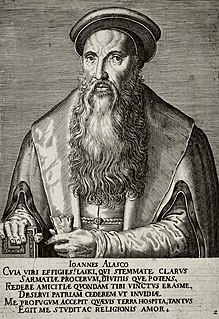 W
WJan Łaski or Johannes à Lasco was a Polish Reformed reformer. Owing to his influential work in England during the English Reformation, he is known to the English-speaking world by the Anglicised form John à Lasco.
 W
WHenry Lyte was an English botanist and antiquary. He is best known for two works, A niewe Herball (1578), which was a translation of the Cruydeboeck of Rembert Dodoens, and an antiquarian volume, The Light of Britayne (1588), both of which are dedicated to Queen Elizabeth I.
 W
WChristopher Marlowe, also known as Kit Marlowe, was an English playwright, poet and translator of the Elizabethan era. Modern scholars count Marlowe among the most famous of the Elizabethan playwrights and based upon the "many imitations" of his play Tamburlaine they consider him to have been the foremost dramatist in London in the years just before his mysterious early death. Some scholars also believe that he greatly influenced William Shakespeare, who was baptised in the same year as Marlowe and later became the pre-eminent Elizabethan playwright. Marlowe was the first to achieve critical notoriety for his use of blank verse, which became the standard for the era. His plays are distinguished by their overreaching protagonists. Themes found within Marlowe's literary works have been noted as humanistic with realistic emotions, which some scholars find difficult to reconcile with Marlowe's "anti-intellectualism" and his catering to the taste of his Elizabethan audiences for generous displays of extreme physical violence, cruelty, and bloodshed.
 W
WThe Reverend Father Gregory Martin was an English Catholic Priest, a noted scholar of his time, academic and Doctor of Divinity, and served as the chief translator of the Rheims and Douai Version of the Bible, the first full, official Catholic English Bible translation, translated from the Latin Vulgate.
 W
WHenry Parker, 10th Baron Morley, was an English peer and translator, Lord of Morley, Hingham, Hockering, &c., in Norfolk. He was the son of Alice Parker, 9th Baroness Morley, née Lovel and her husband Sir William Parker, who was Privy councillor and standard bearer to King Richard III.
 W
WAlexander Neville (1544–1614) was an English scholar, known as a historian and translator and a Member of the House of Commons.
 W
WJonker Jan van der Noot (1539–1595) was a Netherlandish writer who is regarded as the first Renaissance poet in Dutch.
 W
WPhilip Numan was a Flemish lawyer and humanist, a writer in prose and verse, sometimes under the pen name Hippophilus Neander.
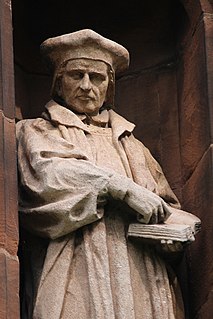 W
WRichard Parry (1560–1623) was a Bishop of St Asaph and translator of the Bible to the Welsh language.
 W
WJohn Rainolds was an English academic and churchman, of Puritan views. He is remembered for his role in the Authorized Version of the Bible, a project of which he was initiator.
 W
WDr Mark Ridley was an English physician and lexicographer, born in Stretham, Cambridgeshire, to Lancelot Ridley. He became physician to the English merchants in Russia, and then personal physician to the Tsar of Russia.
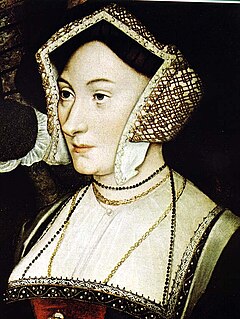 W
WMargaret Roper (1505–1544) was an English writer and translator. Roper, the eldest daughter of Sir Thomas More, is considered to have been one of the most learned women in sixteenth-century England. She is celebrated for her filial piety and scholarly accomplishments. Roper's most known publication is a Latin-to-English translation of Erasmus' Precatio Dominica as A Devout Treatise upon the Paternoster. In addition, she wrote many Latin epistles and English letters, as well as an original treatise entitled The Four Last Things. She also translated the Ecclesiastical History of Eusebius from the Greek into the Latin language.
 W
WElizabeth Russell, Lady Russell was an English noblewoman. She was an influential member of Queen Elizabeth I's court and was known in her time for her refined poetry as well as her musical talent. In 1596, she was a vocal opponent of the reconstruction of Blackfriars Theatre in that London district.
 W
WJacob Mantino ben Samuel was a Jewish scholar and Italian physician, known also as Mantinus.
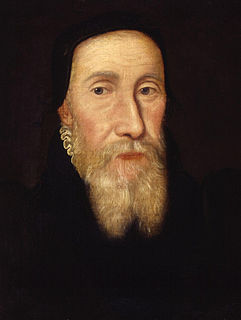 W
WEdwin Sandys was an English prelate. He was Anglican Bishop of Worcester (1559–1570), London (1570–1576) and Archbishop of York (1576–1588) during the reign of Elizabeth I of England. He was one of the translators of the Bishops' Bible.
 W
WSamuel Ward (1572–1643) was an English academic and a master at the University of Cambridge. He served as one of the delegates from the Church of England to the Synod of Dort.